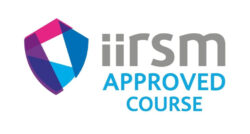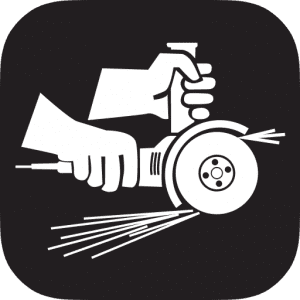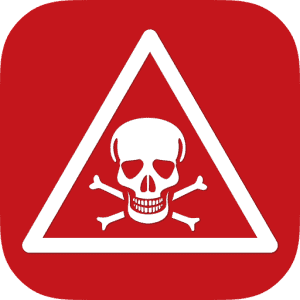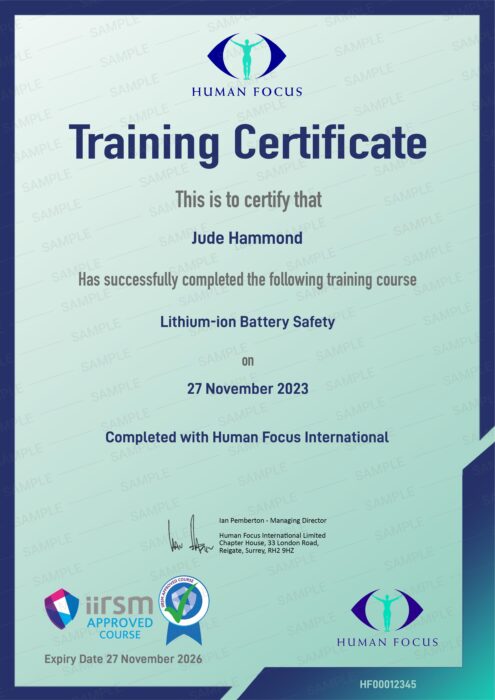Lithium-ion Battery Safety is designed for workers who interact with lithium-ion batteries or lithium-powered devices. It explores the hazards presented by this technology and how they can be managed. This understanding helps workers implement control measures to ensure lithium-ion batteries are charged, handled and disposed of safely and in line with regulations.
From handheld smart devices to large-scale energy storage systems, lithium-ion batteries are now a fixture of modern workplaces. Lithium-ion technology is typically safe when handled correctly, but many workers falsely assume these batteries require no additional considerations.
This lack of awareness, combined with the widespread adoption of this technology, has led to a sharp rise in incidents involving lithium-ion batteries. In one year alone, fires linked to lithium-ion batteries surged by 46% in the UK.
Employers must now assess and manage the risks presented by lithium-ion batteries. This course ensures employees understand the hazards associated with lithium-ion batteries and best practices for using, storing and charging them. With this knowledge, employees can safely handle lithium-ion batteries in various work environments.
While there are currently no lithium-ion battery safety regulations in the UK, employers must consider the risks they present as part of their general health and safety duties.
Under the Health and Safety at Work Act 1974, employers must prevent their work activities from harming workers and members of the public. The Management of Health and Safety at Work Regulations 1999 reinforces this responsibility. It requires employers to identify risks and take appropriate action to eliminate or control them.
Fire risk assessments are also necessary under the Regulatory Reform (Fire Safety) Order 2005. Any fire hazards must be identified and managed appropriately.
Lithium-ion Battery Safety helps ensure compliance with these regulations. It demonstrates steps have been taken to manage risks and gives employees the awareness they need to work safely with lithium-ion batteries.











